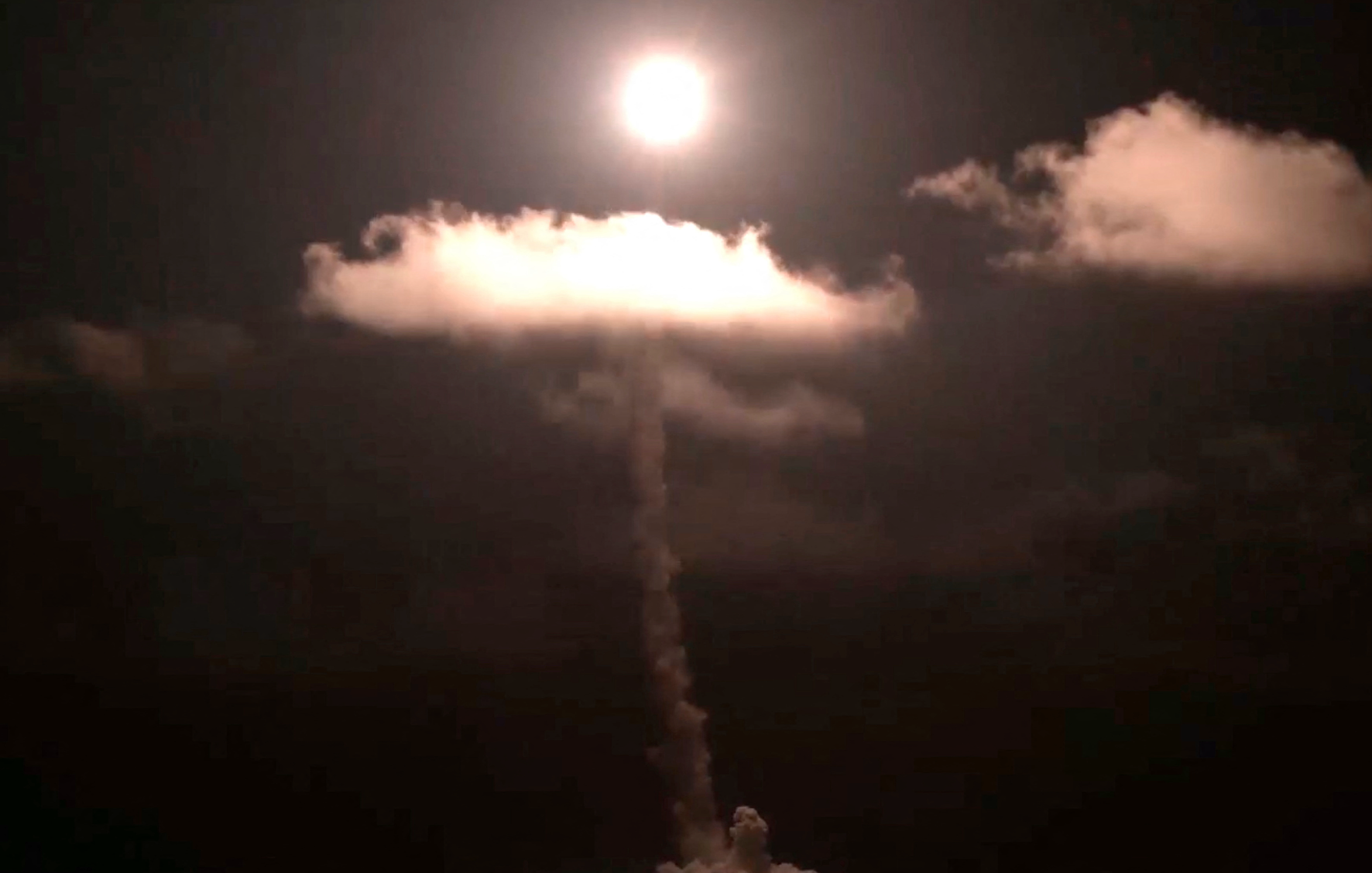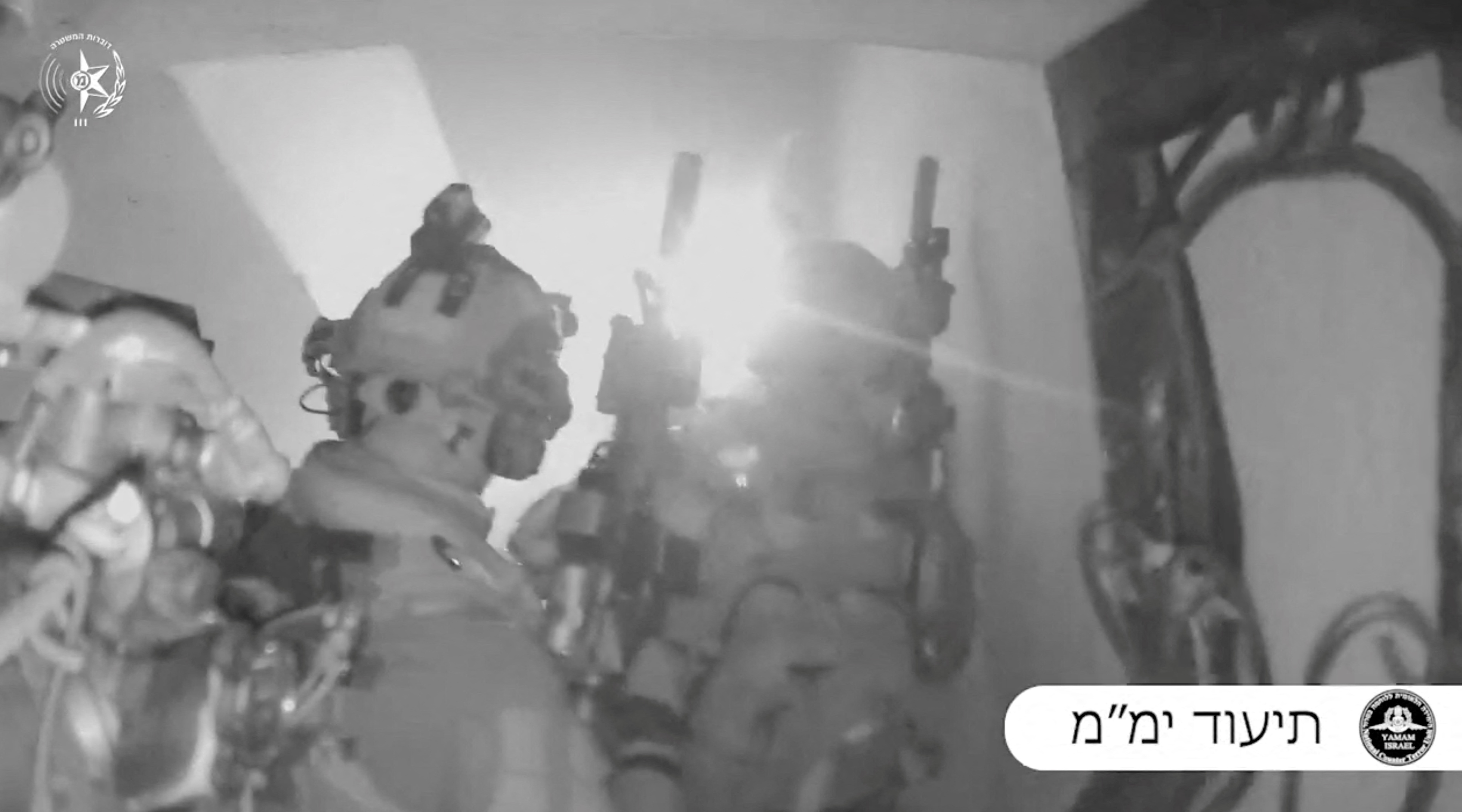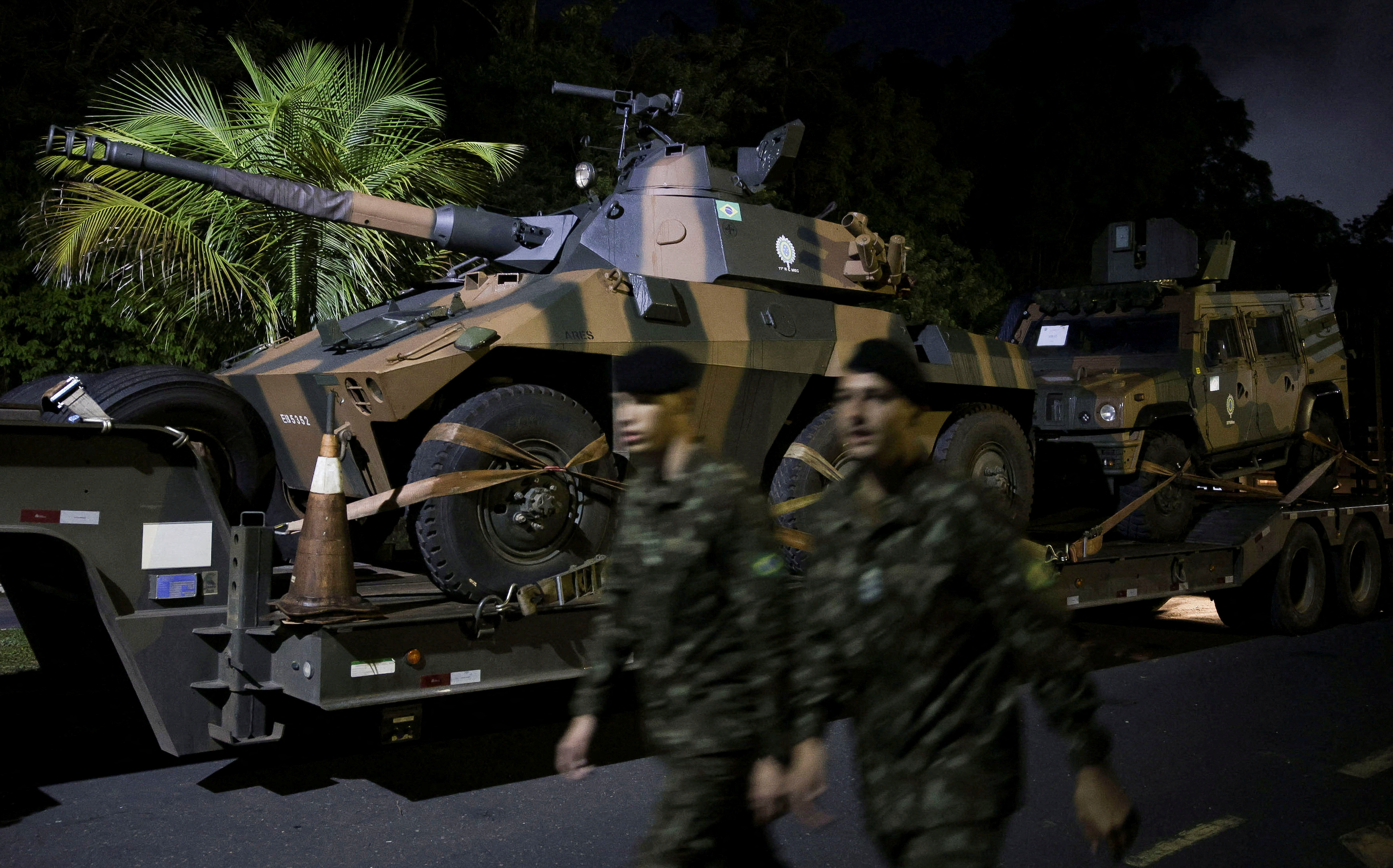
What is the space-based nuclear weapon the US says Russia is developing?
PHOTO CAPTION: Illustrative photo — Russia's new nuclear-powered submarine Imperator Alexander III test launches the Bulava ballistic missile, designed to carry nuclear warheads, from the White Sea, in this screengrab taken from a video released on November 5, 2023. Russian Defence Ministry/Handout via REUTERS
By Guy Faulconbridge
MOSCOW/WASHINGTON (Reuters) -What is the space-based nuclear weapon that the United States has warned Congress and allies in Europe that Russia could use against the West's satellites?
The exact nature of the weapon - and whether it actually exists - is unclear. But threatening satellites could cause all sorts of mischief - undermining communications, surveillance, intelligence and command and control around the world, including in the nuclear sphere.
It is unclear why Russia would need to use nuclear weapons to destroy a satellite. The New York Times said the United States does not have the ability to counter such a weapon.
Following is what is known and not known.
WHAT DOES THE U.S. SAY AND SHOULD WE BE WORRIED?
The United States has told Congress and allies in Europe about new intelligence related to Russian nuclear capabilities that could pose an international threat, a source briefed on the matter told Reuters on Wednesday.
The new capabilities, related to Russian attempts to develop a space-based weapon, do not pose an urgent threat to the United States, the source said.
Sources later said the warning was related to Russian capabilities in space and to satellites. One of the sources said the issue was serious but was not related to an active capability nor should it be a cause for panic.
Citing a current and a former U.S. official, the New York Times reported earlier that the new intelligence was related to Russia’s attempts to develop a space-based anti-satellite nuclear weapon. ABC News also reported that the intelligence had to do with such a capability. Current and former officials said the nuclear weapon was not in orbit.
HOW DID IT COME TO LIGHT?
The intelligence came to light after Representative Mike Turner, Republican chair of the U.S. House of Representatives intelligence committee, issued an unusual and cryptic statement on Wednesday warning of a "serious national security threat".
ARE THERE NUKES IN SPACE?
Russia and the United States are by far the biggest nuclear powers: together their arsenals hold about 90% of the world's nuclear weapons, and both have advanced military satellites orbiting the Earth.
In the early years of the Cold War, after Russia leaped ahead in the space race and both sides developed intercontinental ballistic missiles, the West proposed a treaty to outlaw nuclear weapons in space.
The eventual result was the 1967 Outer Space Treaty which bans putting any weapons of mass destruction into orbit or outer space.
The United States casts Russia and China as its biggest nation-state competitors and says both are developing a range of new weapons systems, including nuclear, cyber and space capabilities.
Russia says the post-Cold War dominance of the United States is crumbling and that Washington has for years sown chaos across the planet while ignoring the interests of other powers. Moscow says the United States too is developing a host of new weapons.
WHAT DID RUSSIA SAY?
Russia has neither confirmed nor denied the existence of such a weapon but it has dismissed the U.S. warning as a "malicious fabrication" and a trick by the White House aimed at getting U.S. lawmakers to approve more Ukraine aid to counter Moscow.
Kremlin spokesman Dmitry Peskov said he would not comment on the substance of the reports until the details were unveiled by the White House. But he said Washington's warning was clearly an attempt to get Congress to approve more money.
"It is obvious that the White House is trying, by hook or by crook, to encourage Congress to vote on a bill to allocate money, this is obvious," Peskov said. "We'll see what tricks the White House will use."
Deputy Foreign Minister Sergei Ryabkov, Moscow's point man on arms control, accused the United States of "malicious fabrication", the TASS news agency reported.
(Reporting by Guy Faulconbridge in Moscow and by Reuters reporters in WashingtonEditing by Gareth Jones)









